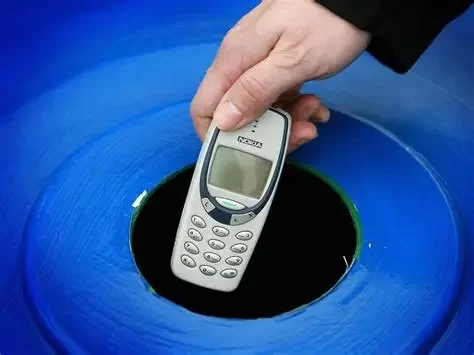
Legal Risks of Using Burner Phones
- 1. What Are Burner Phones?
- 2. Why Do People Use Burner Phones?
- 3. Legal Risks of Using Burner Phones
- 4. Real-Life Cases of Burner Phone Usage
- 5. How to Protect Yourself Legally When Using Burner Phones
1. What Are Burner Phones?
A burner phone is a prepaid mobile phone, often used for short-term purposes, that is typically disposed of after its use. These phones are popular for people who want to maintain a level of privacy or anonymity. Burner phones are typically not tied to a long-term contract, and they often don’t require a lengthy registration process, making them difficult to trace.
How Burner Phones Work
Burner phones can be purchased in stores or online, and they usually come with pre-loaded minutes or data. They allow users to make calls and send texts without the need to register personal information. Because of this anonymity, burner phones are frequently associated with privacy-conscious individuals or those engaging in activities where they wish to conceal their identity.
2. Why Do People Use Burner Phones?
People use burner phones for a variety of reasons, from protecting their privacy to engaging in illegal activities. Here are some of the most common reasons people opt for burner phones:
1. Privacy and Anonymity
One of the primary reasons people use burner phones is to maintain privacy. Whether for personal reasons or business dealings, burner phones allow users to make calls or send messages without linking them to their personal number. It’s particularly useful for those who wish to avoid telemarketing calls or keep their phone number private from strangers.
2. Temporary Use
Burner phones are also used for temporary purposes. For example, travelers may use a burner phone to avoid roaming charges while abroad. Similarly, people in short-term relationships or those needing a phone only for a limited time (such as a one-time business deal) may use a burner phone to avoid committing to a long-term plan.
3. Illegal Activities
Burner phones have gained notoriety for being used in illegal activities. Criminals may use them to communicate without leaving a trace, making it harder for law enforcement to track their communications. This has made burner phones a tool of choice for those involved in drug trafficking, organized crime, or other illicit enterprises.
3. Legal Risks of Using Burner Phones
While burner phones can offer privacy and convenience, their use comes with potential legal risks, especially if they are involved in criminal activities. Here are some of the legal issues that can arise from using burner phones:
1. Connection to Criminal Activity
If a burner phone is used in connection with criminal activity, it can be used as evidence against an individual. While the phone itself might not be traced directly to a user, law enforcement agencies may employ advanced technology and techniques, such as tracking the IMEI number or monitoring call logs, to link a burner phone to criminal behavior.
2. Violation of Privacy Laws
Using a burner phone to violate privacy laws—such as harassing or stalking someone—can result in criminal charges. While burner phones offer a degree of anonymity, using them for illegal activities like making threatening phone calls or distributing personal information without consent is a serious violation of privacy laws and can lead to fines or imprisonment.
3. Breach of Terms of Service
Even if burner phones are legal to purchase and use, they can sometimes violate the terms of service of telecommunications companies. Many phone providers have strict rules against fraudulent or abusive use of their services. Using burner phones to bypass these terms (such as avoiding paying bills or conducting fraudulent activities) could lead to service suspension or other legal consequences.
4. Federal Investigations
If law enforcement suspects that a burner phone is being used in an illegal activity, they can obtain a warrant to investigate the phone’s activity. This may include tracking the phone’s location, examining its call logs, or monitoring text messages. In some cases, if the burner phone is linked to a crime, the user could face federal charges, depending on the severity of the offense.
4. Real-Life Cases of Burner Phone Usage
Burner phones have often made headlines in high-profile cases involving crime and surveillance. Below are a few notable real-life cases where burner phones played a significant role:
1. The Silk Road Investigation
The Silk Road was an online black market where illegal goods, including drugs, were traded. The website’s administrators and users used burner phones to conduct transactions and communicate anonymously. The FBI used sophisticated techniques to trace burner phone activity, leading to the arrest of Ross Ulbricht, the founder of Silk Road. This case highlights how burner phones, while seemingly anonymous, can still be traced by law enforcement in criminal investigations.
2. Organized Crime Operations
Burner phones have also been used by criminal organizations to maintain communication while avoiding detection. Law enforcement agencies have seized numerous burner phones in raids involving drug cartels and organized crime syndicates. In many cases, burner phones were used to coordinate illegal activities without leaving a digital footprint, though technological advancements have made it increasingly easier to link these phones back to individuals involved in the criminal network.
5. How to Protect Yourself Legally When Using Burner Phones
If you’re using a burner phone for legitimate reasons—such as privacy or temporary use—there are ways to protect yourself legally. Here are some tips:
1. Stick to Legal Uses
The simplest way to avoid legal issues is to use a burner phone for legal and ethical purposes only. Avoid using it for harassment, fraud, or any form of criminal activity. By staying within the bounds of the law, you can ensure that your use of a burner phone doesn’t attract unwanted legal attention.
2. Use Secure Communication Apps
If privacy is a major concern, consider using encrypted messaging apps on your burner phone. Apps like Signal or WhatsApp provide secure, end-to-end encryption, making it more difficult for unauthorized parties to intercept your messages. This adds an additional layer of security and privacy to your communications.
3. Dispose of the Phone Properly
When you no longer need the burner phone, dispose of it properly. Remove all personal information, delete any stored data, and consider removing the SIM card. This ensures that no trace of your personal data or communication history is left behind, reducing the chances of it being used against you later.








